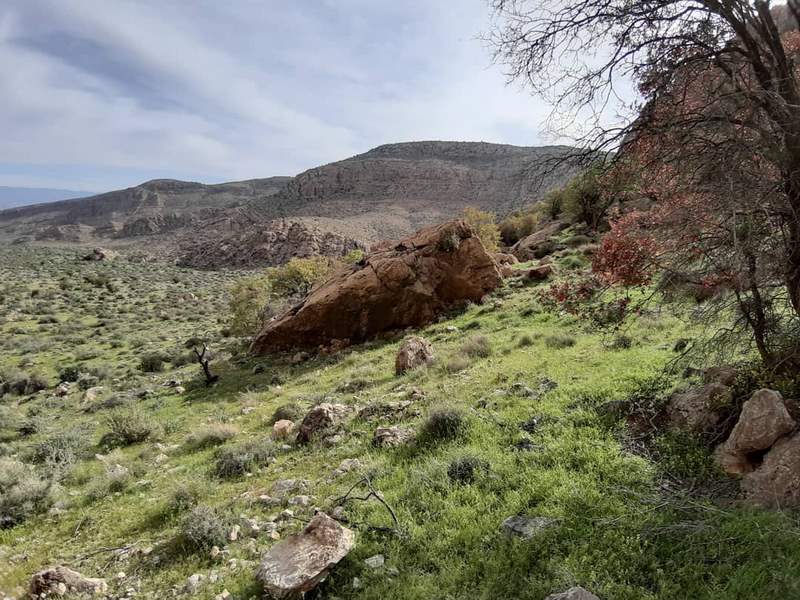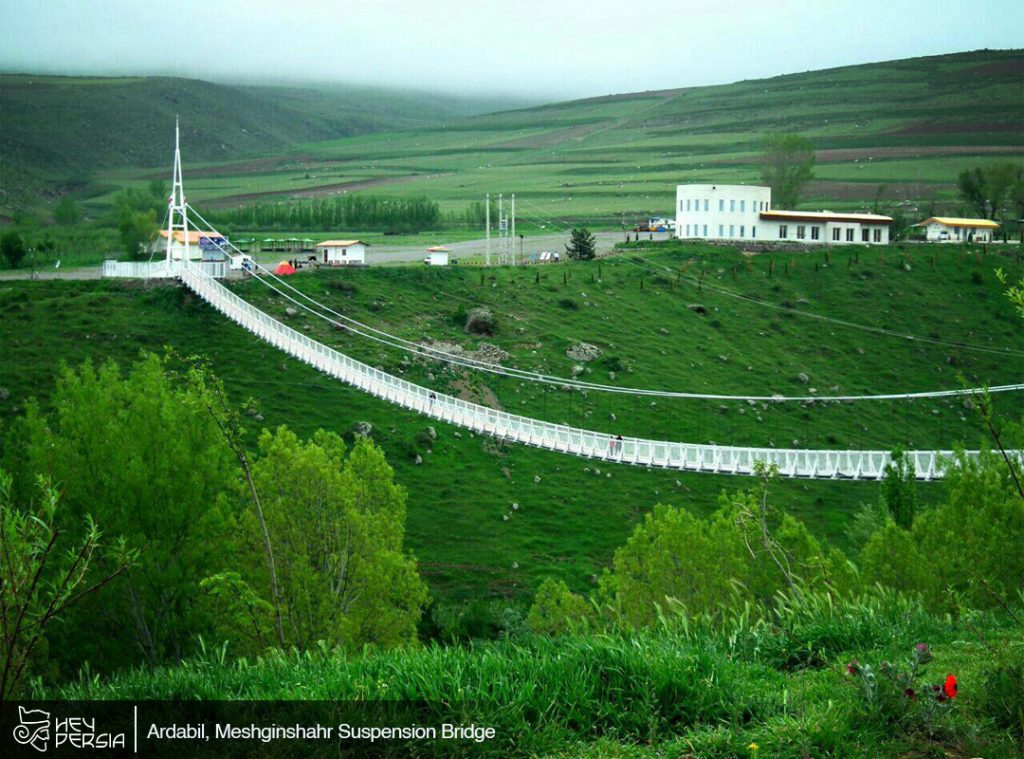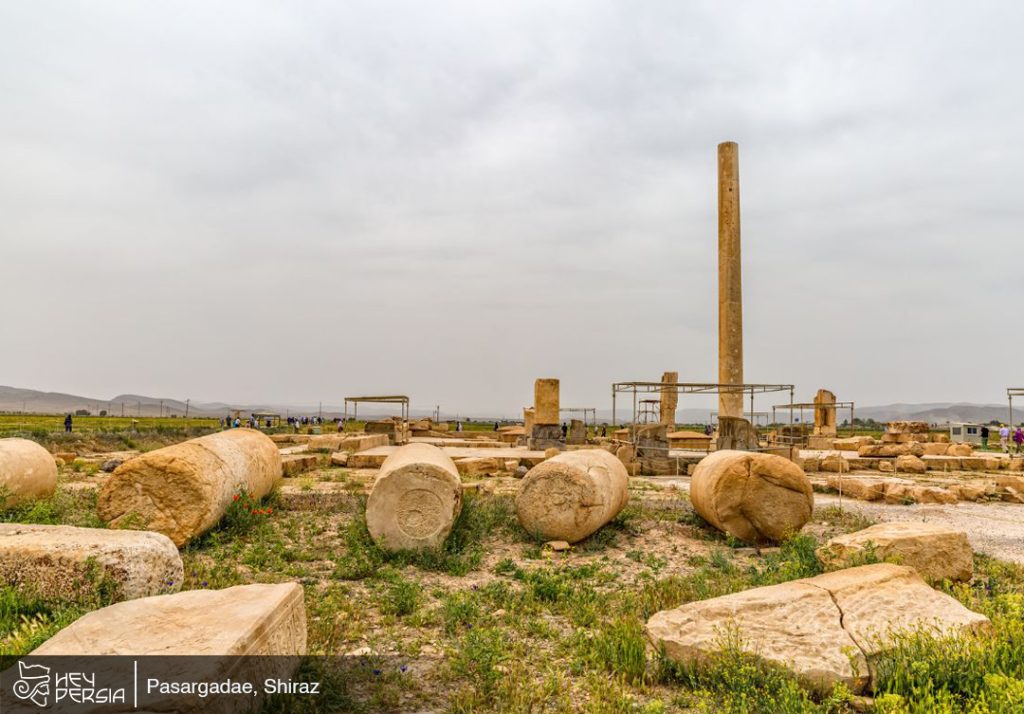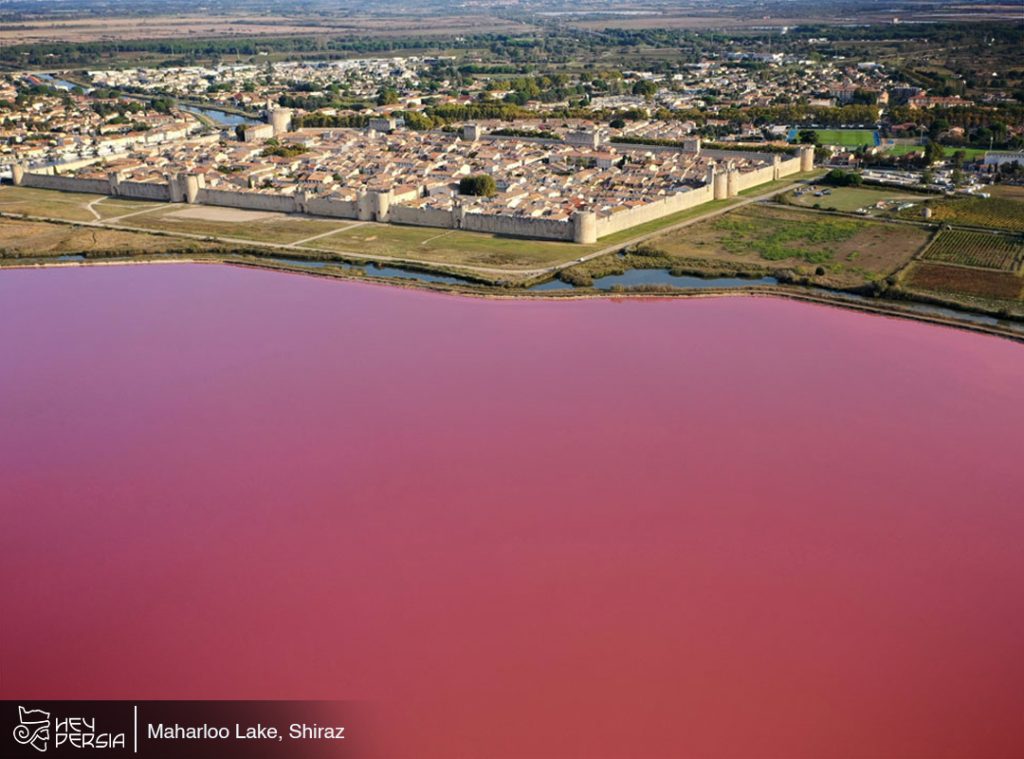Bakhtegan International Lagoon” forms an important part of Bakhtegan National Park and Wildlife Sanctuary. Hans Laufer Austrian researcher says: There is nothing like it anywhere in the world. Bakhtegan Lake has a very interesting feature. The water on the east side is sweet in winter and the water on the west side is salty in summer. Something that can be in rare wetlands. Today we are going to talk more about Bakhtegan International Wetland and Bakhtegan National Park and Wildlife Sanctuary in Hey Persia blog. If you like Bakhtegan National Park in Iran topic, stay with us until the end of the article.
Where is Bakhtegan National Park and Wildlife Sanctuary?
Bakhtegan complex is located 70 km from Niriz city with an area of 160 thousand hectares. This complex consists of three separate parts named “Bakhtegan Wildlife Sanctuary”, “Bakhtegan National Park” and Bakhtegan Lake. Bakhtegan National Park has an area of 117,000 hectares and includes the 120 km Bakhtegan lake and a part of mountainous lands.
The 242,000-hectare Bakhtegan Wildlife Sanctuary is in the north of the lake and is into two halves, the northern and the southern, by the Bakhtegan National Park. In the Bakhtegan Wildlife Sanctuary, the half-meter “Tashk” lake flows with salty water. Bakhtegan Lake, the second largest lake in Iran, is located in the northern part of the national park and near the cities of Niriz, Bakhtegan, Khorameh, Estehban in Fars province.
Bakhtegan National Park and Wildlife Sanctuary
A part of the Bakhtegan area, which was under protection since 1347 AH, was as a national park. 7 years later, in 1354, at the same time, about 242,000 hectares of it was as a shelter and the entire complex as Bakhtegan International Wetland. Bakhtegan National Park with an area of 11,7047 hectares is at an altitude of 1,560 to 2,480 meters, and its average rainfall is at 230 mm. This region with a dry, moderate desert climate consists of two mountainous parts and Bakhtegan Lake.
Animals that can be seen in the dry part of Bakhtegan National Park include 46 species of mammals, 218 species of birds, 36 species of reptiles, 23 species of fish and 3 species of amphibians. Kefche nook, kakai, flamingo, tiho, ram, quebec, hubre, goat, pagen, ram, caracal, boar, wild cat, tshi, rabbit, common fox, sheep and leopard are among the most important creatures of Bakhtegan National Park. The vegetation of Bakhtegan National Park includes trees and shrubs such as baneh, mountain almond, tengres, kikm and kich.
There is a wide strip of kich bushes in the Bagu area that extends up to Mt. In the upper part of the strip, a dense cover of heather has grown. The reason for this is the decrease in altitude and the increase in air temperature, which caused the growth of pine and mountain almond forests instead of oak forests in the region. This coverage continues until around Arsanjan.
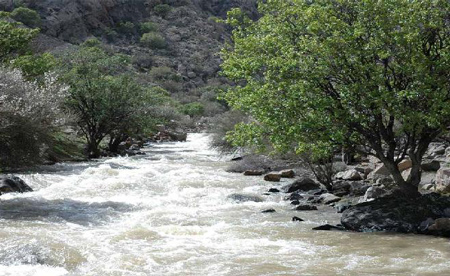
The Pines
In fact, there are the most dense pine forests in this region. Bakhtegan Wildlife Sanctuary has a higher elevation range of 2,960 meters compared to its national park, but its average rainfall and climate are the same. Its vegetation consists mostly of juniper, bane, arjan, kikam, tengres, gez, kich, darmene, kharko, anguze, grass broom, cumin, thyme, soda, alkali, jagen, reed, lui, salsula and domestic endemic species. has been Bakhtegan Wildlife Sanctuary is relatively higher and has a better variety of animal fauna.
This area has 323 animal species. Its most important species are: goats and pheasants, rams and sheep, deer, leopards, forest cats, sand cats, caracals, wolves, long-toed bats, gray pelicans, flamingos, terns, stilts, wetland eagles, white-tailed sea eagles, Lagoon hawk, falcon, yellow heron, bell-winged tern, sea swallow, barbel, braided snake, zebra snake, fish sauce, sandal fish, zebra fish, carp and artemia shrimp.
A short word about Bakhtegan wetland
Bakhtegan International Wetland with an area of 3500 square kilometers is the habitat of birds that migrate to this area from Russia and Siberia in winter. In fact, this wetland along with Tashk Lake and “Ker River” are three important water resources of the region. The water of this lagoon has an interesting feature; It is sweet in the mouth of the rivers and salty to salty in the inner parts of the lab!
This lake, with a depth of 2 meters, merges with Tashek lake in the years when rainfall increases. Its most aquatic plants are algae and diatoms. Bakhtegan Lake has three important islands named “Manak Abi”, “Ali Yusuf” and “Chah Bisheh”, which are the nesting and living places of native and migratory birds.
Why did Bakhtegan lake dry up?
As the water of Bakhtegan lake dries up, the connection between this lake and Tashk is lost, and this problem causes the water of the lake to become saltier and the drying speed of Tashk lake increases.
The wells around Bakhtegan lake will gradually become salty and then bitter. As a result, the water that remains in the wells is no longer useful for agriculture and the agricultural lands will gradually lose their fertility. The water vapor of Bakhtegan lake is very important for agricultural products and the surrounding lands.
As the lake dries up, water vapor no longer rises from it, and as a result, the agricultural products of the cities of Niriz, Bakhtegan, Estehban, Khorameh, Fasa and Arsanjan decrease. The salts in the salt marshes, which are created by the drying of the lake, go to the agricultural lands with a gentle breeze, and as a result, their fertility decreases. The movement of wind blown salts from the dried up lake harms the health of people living in these areas and even their livestock and causes various lung, skin and eye diseases. With the drying up of the Bakhtegan International Wetland, migratory birds will not migrate to this area, and as a result, the region’s ecosystem will move toward desertification.
The attractions of Fars Bakhtegan National Park
There are 2 caves named Pol Takht and Ghar Jamal in Bakhtegan National Park of Shiraz.
Bakhtegan Niriz National Park has many passes such as Hel and Bago pass, Tang Zard and Shahr Pazan.
There are 12 wells named Gamban, Hel, Bago, Akhundu, Liab, Rizab, Bibi Fatemeh, Qalamo, Ghazi Bagh, Naanjir, Moqneh Sar, Bidameshk, Imamzadeh and 2 wells named Daraz and Buyuk in this area.
There are old buildings such as Shah Abbasi and Khizr Nabi footpath in Bakhtegan National Park, which adds to the attractiveness of the area.
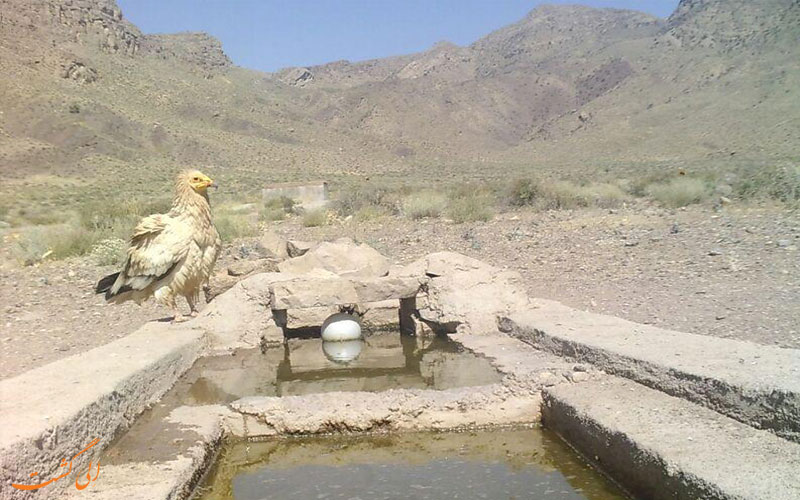
Bakhtegan National Park in Iran
Bakhtegan National Park and Wildlife Sanctuary, along with its lake, are one of the must-see places in Fars province. This complex was as an international wetland in 1354. If you have also traveled to this area and have more information about it, you can write them in the comments and suggestions section and share them with us.
Thank you in advance for your cooperation. Atraq tourism magazine has launched with the aim of getting to know more Iranians who are enthusiastic and interested in this land and water. If you also want to know more about our vast country, you can register on Atraq website and learn about the most important events and tourist places of our country.

